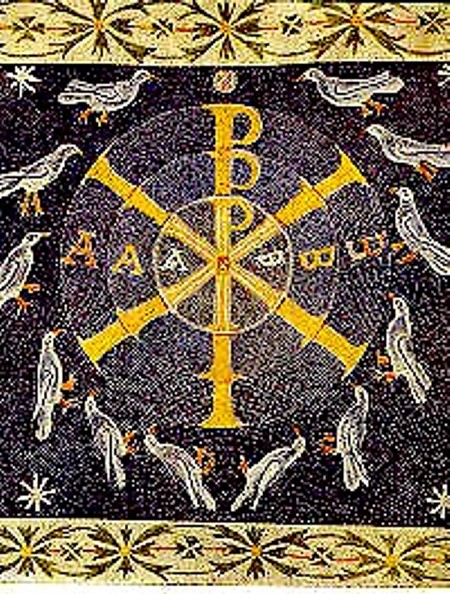The Criterion of Truth
7 Ιουνίου 2010
What would you think if you heard two people having a fierce argument about addition facts? I mean, a real knock down, dragged out battle over whether 1 + 1 really equals 2? What about a spit flying rant over the multiplication table? Or, (this one is a bit more esoteric), whether e actually equals mc2?
For most of us such an argument seems inconceivable outside the walls of an asylum. People simply don’t fight over addition, multiplication, or Einstein’s equation about mass and the speed of light.
Why? Because we accept them as facts. Oh, we may ask questions about why and how mathematics or physics work. In fact, if we are good students, it is often because we ask questions. But we generally don’t debate the answers once we have learned them. We simply accept them as true.
This is clearly not the case with theological truths]]especially in the Post Enlightenment West. Theology and religious dogma are dealt with as something utterly different from mathematics. Math is facts; theology is opinion]]at least in the minds of most Europeans and Americans.
Yet in most of the world and for most of history this has not been the case at all. Far from being a matter of mere opinion, what one believed about God was considered to be the highest truth. And if there were opposing beliefs, they were understood to be as wrong as saying 1+1=4, or 5×5=10. Theology was about facts, not opinions. One was either right or one was wrong.
Now, I can hear you saying :»But it is easy to demonstrate 1+1 by counting out a couple of objects and 5×5 by setting up five groups of five. How do you demonstrate the Trinity, or, prove the divine humanity of Christ?»
And, in truth, we are talking about two different kinds of truth : one concrete and easily demonstrated, the other based on faith.
And yet, many if not most «enlightened» people today subscribe to all sorts of «truths» that cannot be demonstrated except by faith.
Let me illustrate this point more clearly. The vast majority of Americans and Europeans believe that without question «all men (people) are created equal». It is a political, social, and moral given. And yet it can be easily demonstrated that not everyone is equal at all in terms of strength, intelligence, wealth, or a whole host of other sets of criteria. People are manifestly NOT equal,except in the eyes of God. Many of the most vociferous proponents of equality are quick to deny the equality-even the humanity-of those who are politically inconvenient. The previous entries on the issue of abortion are examples that support my assertion.
Still, if you ask most people if they believe that «all men are created equal» they will say, «yes». And their «yes» is grounded in faith alone. They believe because they’ve been taught to believe and it would seem as outlandish-not to say outrageous-to imagine an argument raging between two political candidates over equality as it is to imagine a debate over math facts.
Equality is considered a fundamental fact in our political and social system even when we demonstrate just the opposite in our actual actions with increasing frequency. We do this, by the way, by redefining who is a person. If certain people are not persons because of their developmental status, value to society, or ability to defend themselves we can still pretend we believe that all people are equal; its just that some people are no longer people!
At any rate, our criterion of truth for the equality of human beings like our criterion of truth for theology is based on faith. In the case of human equality this faith was originally based in a divine revelation. That all human beings are fundamentally equal is a faith statement grounded in the Christian belief that human beings are made in the image and likeness of God and that God became a human being Himself to reveal their full value. Once the foundation for believing that all people are equal is no longer accepted as a fact (meaning, once what we believe God is reduced to mere opinion) then all the beliefs that are based on that foundation begin to totter. This is why it is possible to assert the words, «all people are created equal», while at the same time depriving whole classes of human beings of their most basic rights.
As Jesus taught, a house built without a foundation (or which has been moved off its oundation) will be easily swept away in a flood. In the case of this society, the eluge has already begun.






